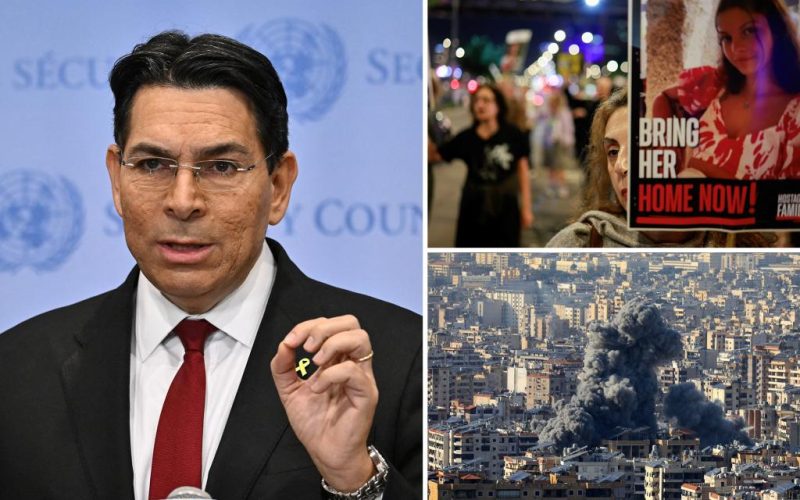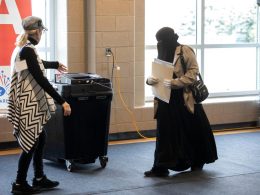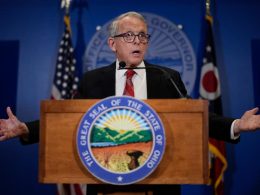WASHINGTON — Israel’s cease-fire agreement with Hezbollah inked Tuesday may grease the wheels on securing the release of the remaining hostages — including four Americans — in Hamas’ custody for more than a year, the Jewish State’s UN Ambassador Danny Danon exclusively told The Post on Wednesday.
As hostilities from Lebanon’s Hezbollah into Israel’s north are expected to ease, Danon said it will free up the Jewish State to focus even more of its efforts on returning the hostages taken by Hamas in the horrific Oct. 7, 2023, attack on Israeli civilians, which prompted the war.
“With Hamas, [the Israel-Hezbollah ceasefire] will support our desire to release more hostages,” he said. “We will be able to focus on Gaza.”
At least four American citizens are believed to still be held in captivity by Hamas, along with the bodies of three more who have yet to be retrieved.
That’s partly because Israel, through its strategic tactics and slaughtering of former Hezbollah leader Hassan Nasrallah, broke a “linkage” between the Lebanese terror group and Hamas, Danon said.
Before his death, Nasrallah had wanted a ceasefire with Hezbollah to be tied to one with Gaza as well.
“The power and determination we showed broke that linkage between between Hamas and Hezbollah. and I think today, it allows us to move to focus more on what’s happening in Gaza and to apply more pressure in order to release hostages,” he said.
That separation of the proxy groups has dampened Hamas’ aspirations of leading not just its own revolt against Israel, but a larger regional war on the Jewish state, the ambassador said.
“I think today [Hamas] realizes that the ambitions that it will be a regional effort against Israel, with Iran and Hezbollah joining them, I think today they realize that it’s not happening,” he said. “You know, Hezbollah’s out of the game. Hamas also, we proved to them our capabilities.”
“So I do think that today, Hamas understands that there’s a different reality.”
However, that largely depends on whether Hezbollah sticks to the 60-day ceasefire agreement, which is based on an 18-year-old UN resolution called Resolution 1701 that was adopted in 2006 to end a month-long war between Israel and Lebanon at that time.
“From the beginning, we said very clearly that we will push Hezbollah off of the Litani River, and we accomplished this goal. You know, we also were able to degrade the capability to Hezbollah, but I think the main question is still open, which is the implementation of the agreement,” Danon told The Post.
While that agreement ultimately degraded, Danon said Israel “will have zero tolerance” this time for any Hezbollah violation of the ceasefire.
“When you look back at the 2006 when we passed Resolution 1701 in the UN Security Council, there were a lot of expectations, but then Hezbollah slowly came back with weapons, and they built a massive infrastructure on our border,” he said.
“Today, we have a different approach. We are much more determined not to allow it to happen again. And I think the implementation will be different.”
Still, the ambassador said he did not believe that the ceasefire would wholly deter Iran from continuing to pressure Hezbollah, which is considered an Iranian proxy group, to engage in continued strikes on Israel.
“I don’t think that they will stop completely their efforts with Lebanon and Hezbollah. They are heavily invested, both in Lebanon and Syria, and they will continue to try to sow chaos in the region, and I don’t think that they will stop.”
“I think they will continue to spend billions of dollars on their proxies and we see the casualties, we see the Houthis, you know,” he said. “There were great attacks on maritime [trade] and the cost of living all around the world.”
Ultimately, the hope of progress toward an end to the war will hang largely on Hezbollah sticking to the ceasefire — and allowing Northern Israelis the chance to safely return to their homes without fear of strikes from Lebanon in the north.
“We have to make sure that Hezbollah is leaving the area, and we are deploying our forces back into Israel. But I think the challenge will be in the after that to see what’s actually happening,” he said.








